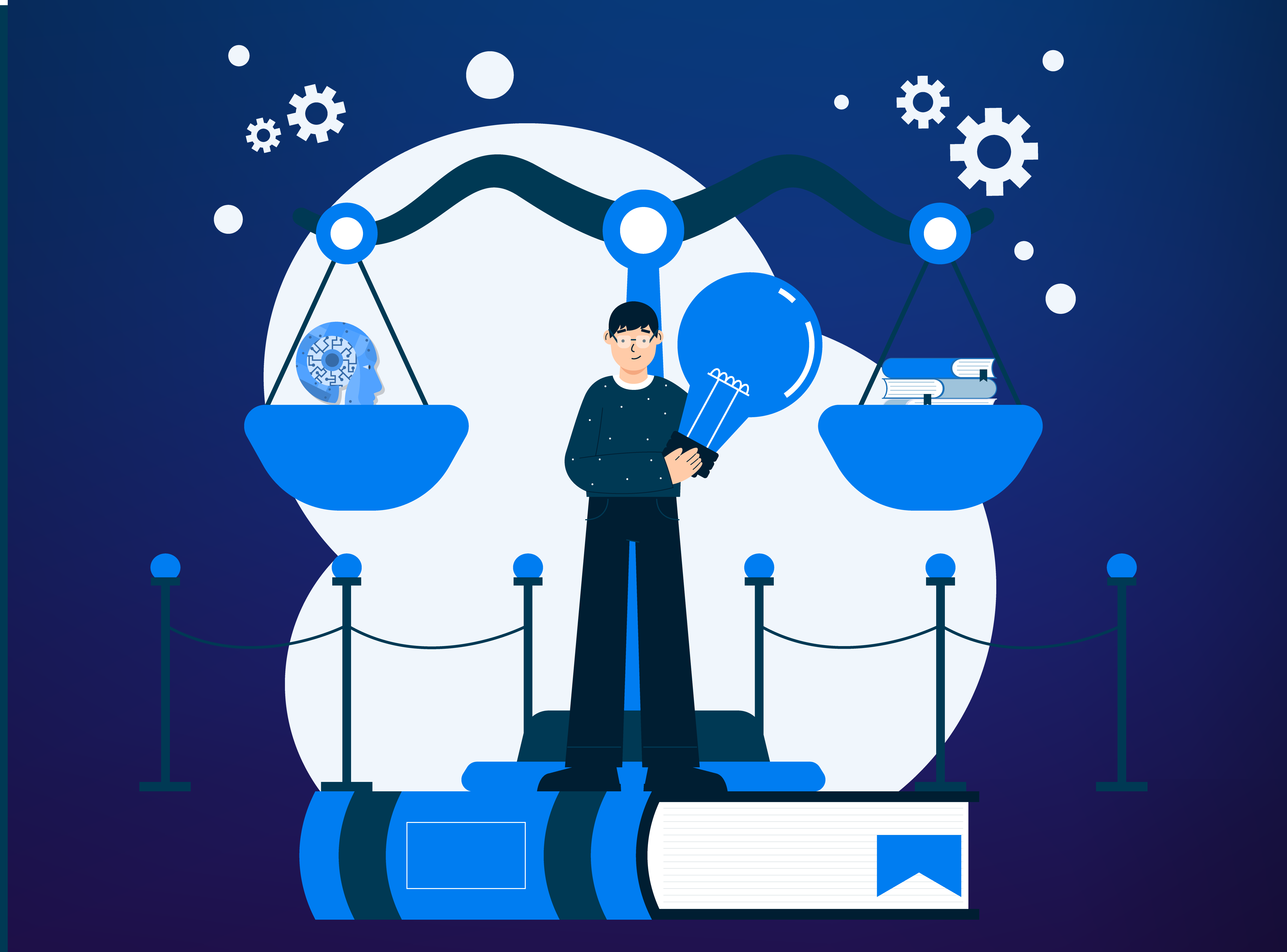As artificial intelligence (AI) continues to revolutionize various sectors, AI chatbots have emerged as powerful tools for enhancing customer service, streamlining operations, and providing personalized experiences. However, the rapid advancement and widespread adoption of these technologies bring with them a host of ethical considerations. Ensuring the responsible applicability of AI in chatbot development is paramount to building trust, protecting user privacy, and fostering fairness. This blog delves into the ethical considerations in AI chatbot development, exploring the challenges and proposing solutions to navigate these complex issues.
The Rise of AI Chatbots
AI chatbots have evolved from simple rule-based systems to sophisticated entities capable of understanding and generating human-like responses. Powered by natural language processing (NLP) and machine learning (ML), these chatbots can handle complex queries, learn from interactions, and provide personalized assistance. Companies worldwide, including those in India like Haptik and Wysa, are leveraging AI chatbots to enhance customer engagement and operational efficiency.
Key Ethical Considerations
The deployment of AI chatbots raises several ethical issues that developers and businesses must address to ensure responsible use. Here are the primary considerations:
1. Privacy and Data Security
One of the most pressing ethical concerns is the protection of user privacy. AI chatbots often require access to vast amounts of personal data to function effectively. This data includes sensitive information such as contact details, transaction history, and even health records. Ensuring robust data security measures and compliance with data protection regulations like GDPR and India’s Personal Data Protection Bill is crucial.
Solution: Implement end-to-end encryption for data transmission, anonymize user data wherever possible, and ensure compliance with relevant data protection laws. Regular security audits and vulnerability assessments can help identify and mitigate potential risks.
2. Transparency and Accountability
Transparency in how AI chatbots operate and make decisions is essential for building user trust. Users should be informed when they are interacting with a chatbot and not a human. Additionally, understanding how the chatbot processes their data and makes decisions is critical.
Solution: Clearly communicate the chatbot’s capabilities and limitations to users. Provide detailed privacy policies and make the decision-making process of the chatbot as transparent as possible. Establish accountability by ensuring that there is always a human in the loop for handling sensitive or complex issues.
3. Bias and Fairness
AI chatbots can inadvertently perpetuate biases present in their training data, leading to unfair treatment of certain user groups. This can result in discriminatory practices and reinforce existing inequalities.
Solution: Use diverse and representative datasets for training AI chatbots. Regularly audit chatbot interactions for bias and implement corrective measures as needed. Incorporate fairness metrics into the development process to evaluate and mitigate bias.
4. Consent and User Control
Users should have control over their data and the interactions they have with AI chatbots. Obtaining explicit consent before collecting or using personal data is a fundamental ethical requirement.
Solution: Ensure that users provide informed consent before interacting with the chatbot and have the ability to opt out at any time. Provide easy-to-use mechanisms for users to manage their data, including options to delete or retrieve their information.
5. Emotional and Psychological Impact
AI chatbots are increasingly used in sensitive areas such as mental health support and customer service. It is essential to consider the emotional and psychological impact of interactions with chatbots, especially when dealing with vulnerable individuals.
Solution: Design chatbots with empathy and emotional intelligence. Use sentiment analysis to gauge user emotions and respond appropriately. Ensure that chatbots can escalate issues to human agents when necessary to provide appropriate support.
Best Practices for Ethical AI Chatbot Development
To address these ethical considerations, developers and businesses can adopt the following best practices:
1. Ethical Design Principles
Incorporate ethical design principles from the outset of the development process. This includes prioritizing user privacy, ensuring transparency, and designing for inclusivity and fairness.
2. Cross-Disciplinary Collaboration
Involve experts from various disciplines, including ethics, law, psychology, and sociology, in the development process. This collaborative approach ensures that multiple perspectives are considered, leading to more ethically sound solutions.
3. Continuous Monitoring and Improvement
Ethical considerations should not end with the deployment of the chatbot. Continuously monitor chatbot interactions for ethical issues and implement improvements based on user feedback and ethical audits.
4. User Education and Engagement
Educate users about the capabilities and limitations of AI chatbots. Engage with users to gather feedback and understand their concerns. This proactive approach helps build trust and ensures that the chatbot meets user expectations.
The Role of Regulation
Regulatory frameworks play a crucial role in ensuring the ethical development and deployment of AI chatbots. Governments and regulatory bodies must establish clear guidelines and standards for AI ethics. In India, the Personal Data Protection Bill is a step towards safeguarding user privacy and ensuring responsible data handling.
The ethical development and deployment of AI chatbots are critical to harnessing the full potential of this transformative technology. By addressing privacy and data security, ensuring transparency and accountability, mitigating bias, obtaining user consent, and considering the emotional impact of interactions, businesses can build trust and deliver value to users.
At Nuclay Solutions, we are committed to developing AI chatbots that prioritize ethical considerations and deliver exceptional user experiences. Our team of experts is dedicated to ensuring that our solutions are not only innovative but also responsible and fair. Explore our offerings and learn how we can help you implement ethical AI chatbot solutions for your business.



